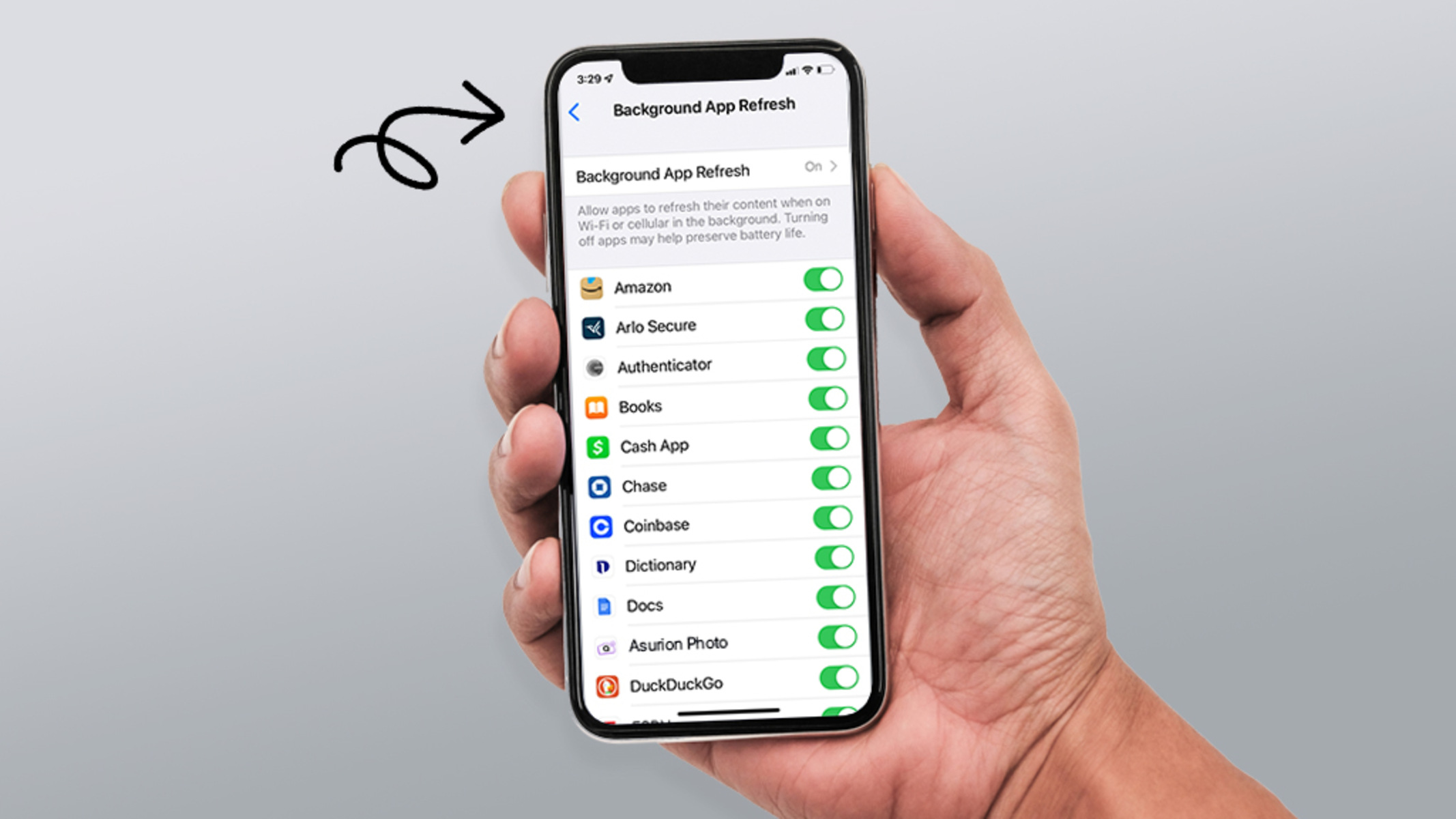Introduction
In today's digital age, the use of mobile devices has become ubiquitous, with people relying on smartphones and tablets for various tasks, including browsing the internet. As a result, the significance of mobile browsers has soared, playing a pivotal role in shaping the way individuals access and interact with online content. Understanding the essence of mobile browsers is crucial in comprehending their impact on the modern digital landscape.
Mobile browsers serve as the gateway to the vast expanse of the internet, enabling users to explore websites, access information, and engage with online services while on the go. These specialized browsers are tailored to accommodate the unique requirements of mobile devices, offering a seamless and optimized browsing experience on smaller screens.
As the demand for mobile browsing continues to surge, the need for efficient and user-friendly mobile browsers has intensified. With the rapid evolution of technology, mobile browsers have undergone significant advancements, incorporating innovative features and functionalities to cater to the diverse needs of users.
In this article, we will delve into the intricacies of mobile browsers, unraveling their defining characteristics, exploring their significance in the digital realm, and shedding light on the popular mobile browsers that have garnered widespread acclaim. By gaining insights into the world of mobile browsers, readers will gain a deeper appreciation for the indispensable role these browsers play in shaping the mobile browsing experience.
Definition of a Mobile Browser
A mobile browser, also known as a mobile web browser, is a specialized software application designed to facilitate internet browsing on mobile devices such as smartphones and tablets. It serves as the primary interface through which users access and interact with web content while on the move. Unlike traditional web browsers tailored for desktop or laptop use, mobile browsers are optimized to deliver a seamless and responsive browsing experience on smaller screens, accommodating the unique characteristics of mobile devices.
These browsers are equipped with features and functionalities that cater to the specific requirements of mobile users, including touch-screen navigation, gesture-based interactions, and adaptive rendering of web content. Mobile browsers are adept at interpreting and displaying web pages in a format that aligns with the dimensions and capabilities of mobile devices, ensuring that users can effortlessly navigate websites and consume online content without encountering compatibility issues.
One of the fundamental aspects of a mobile browser is its ability to adapt to varying network conditions, as mobile devices frequently operate on cellular networks with fluctuating bandwidth and connectivity. As such, mobile browsers are engineered to optimize data usage, load web pages efficiently, and prioritize content delivery to accommodate the constraints of mobile network environments.
Furthermore, mobile browsers often integrate features such as tabbed browsing, bookmark management, private browsing modes, and synchronization across devices, empowering users to personalize their browsing experience and seamlessly transition between multiple web pages while maintaining data privacy and security.
In essence, a mobile browser serves as a gateway to the digital realm, empowering users to explore the internet, access online services, and engage with a myriad of web-based resources from the convenience of their mobile devices. Its adaptability, user-centric design, and ability to harmonize with the dynamic nature of mobile technology make it an indispensable tool for individuals seeking to harness the full potential of the internet while on the go.
Features of a Mobile Browser
Mobile browsers encompass a diverse array of features meticulously crafted to elevate the browsing experience on handheld devices. These features are tailored to address the unique characteristics of mobile usage, ensuring seamless navigation, efficient data management, and enhanced user interaction. Here are the key features that distinguish mobile browsers and contribute to their indispensability in the digital landscape:
-
Responsive Design: Mobile browsers are adept at rendering web content in a responsive manner, dynamically adjusting the layout and formatting to suit the screen size and orientation of the device. This responsiveness ensures that websites are displayed optimally, eliminating the need for horizontal scrolling and preserving visual coherence across various mobile devices.
-
Touchscreen Navigation: Given the prevalence of touchscreen interfaces on mobile devices, mobile browsers are equipped with intuitive touch-based navigation capabilities. Users can effortlessly swipe, pinch, and tap to interact with web content, enhancing the tactile and interactive nature of the browsing experience.
-
Data Compression: To mitigate the impact of limited bandwidth and varying network conditions, mobile browsers often integrate data compression techniques. By compressing web content before transmission, these browsers minimize data usage, accelerate page loading times, and alleviate the strain on mobile networks, thereby optimizing the browsing experience in resource-constrained environments.
-
Tabbed Browsing: Tabbed browsing empowers users to open multiple web pages within a single browser window, facilitating efficient multitasking and seamless navigation between different websites. This feature enhances productivity and streamlines the management of multiple web pages, allowing users to organize and switch between various online resources with ease.
-
Private Browsing Mode: Mobile browsers prioritize user privacy by offering a private browsing mode, also known as incognito mode. When activated, this feature prevents the browser from storing browsing history, cookies, and other temporary data, ensuring that users can explore the web without leaving traces of their online activities on the device.
-
Bookmark Management: Users can save and organize their favorite websites using the bookmark management feature, enabling quick access to frequently visited web pages. This functionality facilitates personalized browsing experiences, allowing users to curate a collection of preferred websites for convenient retrieval.
-
Synchronization Across Devices: Many mobile browsers offer synchronization capabilities, enabling users to seamlessly access their browsing history, bookmarks, and saved passwords across multiple devices. This synchronization fosters continuity in the browsing experience, allowing users to transition effortlessly between their mobile devices and desktop computers while maintaining consistency in their browsing preferences.
-
Enhanced Security Features: Mobile browsers prioritize security by implementing robust measures to safeguard user data and protect against online threats. These features may include built-in phishing protection, malware detection, and secure connection protocols, bolstering user confidence in the safety and integrity of their online interactions.
In essence, the amalgamation of these features equips mobile browsers with the versatility and adaptability required to cater to the dynamic needs of mobile users, empowering individuals to explore the internet, engage with online content, and navigate the digital landscape with unparalleled convenience and efficiency.
Importance of Mobile Browsers
The significance of mobile browsers in the contemporary digital ecosystem cannot be overstated, as these specialized applications play a pivotal role in shaping the mobile browsing experience and empowering users to harness the full potential of the internet on their handheld devices. The importance of mobile browsers stems from their ability to cater to the unique requirements of mobile users, optimize web content for smaller screens, and facilitate seamless access to online resources while on the move.
Mobile browsers serve as the gateway to a vast array of online content, enabling users to explore websites, access information, and engage with web-based services irrespective of their geographical location or the constraints of traditional computing environments. This accessibility is particularly crucial in today's fast-paced society, where individuals rely on their mobile devices as primary tools for communication, information retrieval, entertainment, and productivity.
Furthermore, the importance of mobile browsers is underscored by their role in democratizing access to information and digital resources. By providing a user-friendly interface for navigating the internet, mobile browsers empower individuals from diverse backgrounds and geographic locations to connect with global knowledge repositories, educational platforms, e-commerce websites, and a myriad of online services. This democratization of access fosters inclusivity and equalizes opportunities for individuals to partake in the digital realm, transcending barriers and broadening the horizons of information dissemination and consumption.
Moreover, mobile browsers contribute to the seamless integration of online experiences into the fabric of daily life, enabling users to leverage the power of the internet for a myriad of purposes, including communication, entertainment, research, and commerce. Whether accessing social media platforms, streaming multimedia content, conducting research, or making online purchases, mobile browsers serve as the conduit through which users engage with the digital landscape, blurring the boundaries between virtual and physical realms.
Additionally, the importance of mobile browsers is accentuated by their role in driving technological innovation and user-centric design. As the demand for mobile browsing continues to surge, developers and technology companies are compelled to enhance the capabilities and performance of mobile browsers, leading to the evolution of features such as progressive web apps, augmented reality experiences, and voice-activated browsing. This relentless pursuit of innovation not only enriches the browsing experience but also propels advancements in mobile technology, shaping the trajectory of digital evolution.
In essence, the importance of mobile browsers lies in their ability to empower users, facilitate seamless access to online content, democratize information, and propel technological innovation. As the digital landscape continues to evolve, mobile browsers will remain integral to the fabric of modern connectivity, serving as indispensable tools for individuals seeking to navigate the internet with unparalleled convenience and efficiency.
Popular Mobile Browsers
The realm of mobile browsing is replete with a diverse array of mobile browsers, each vying to offer a compelling and seamless browsing experience tailored to the unique preferences and requirements of users. These popular mobile browsers have garnered widespread acclaim, owing to their innovative features, robust performance, and user-centric design, solidifying their status as frontrunners in the competitive landscape of mobile browsing. Let's delve into the distinctive attributes of some of the most prominent mobile browsers that have captivated the attention of users worldwide:
-
Google Chrome: Renowned for its speed, reliability, and seamless integration with the broader Google ecosystem, Google Chrome stands as a dominant force in the realm of mobile browsing. Its intuitive interface, synchronization across devices, and support for progressive web apps have positioned it as a preferred choice for users seeking a cohesive and feature-rich browsing experience.
-
Safari: Exclusively tailored for Apple devices, Safari embodies elegance and efficiency, offering a seamless browsing experience that harmonizes with the intuitive design philosophy of iOS. With features such as Reader Mode, Intelligent Tracking Prevention, and seamless integration with iCloud, Safari remains a cornerstone of the Apple ecosystem, delivering a refined and secure browsing experience to millions of users.
-
Mozilla Firefox: Embracing a commitment to privacy and customization, Mozilla Firefox has carved a niche for itself as a versatile and privacy-centric mobile browser. Its robust privacy features, extensive add-on support, and emphasis on user empowerment through customization have resonated with users seeking a personalized and secure browsing environment.
-
Microsoft Edge: Evolving from its predecessor, Microsoft Edge has emerged as a formidable contender in the mobile browsing arena, leveraging its seamless integration with Windows 10 and innovative features such as Collections, Immersive Reader, and proactive tracking prevention to offer a compelling browsing experience that aligns with the broader Microsoft ecosystem.
-
Opera: Recognized for its data-saving capabilities, built-in ad blocker, and integrated messenger apps, Opera has garnered a dedicated user base seeking a streamlined and data-efficient browsing experience. Its emphasis on speed, privacy, and integrated messaging services sets it apart as a versatile and feature-rich mobile browser.
-
Brave Browser: Championing privacy and security as its core tenets, Brave Browser has gained traction among users seeking a browsing experience fortified with robust privacy features, ad-blocking capabilities, and a unique rewards system that incentivizes user engagement while preserving data privacy.
These popular mobile browsers exemplify the diverse spectrum of choices available to users, each offering a distinct blend of features, performance, and ecosystem integration. As the landscape of mobile browsing continues to evolve, these browsers remain at the forefront, shaping the trajectory of user experiences and technological innovation in the realm of mobile connectivity.
Conclusion
In conclusion, mobile browsers stand as indispensable conduits that bridge the gap between users and the vast expanse of the internet, empowering individuals to seamlessly navigate the digital landscape while leveraging the capabilities of their handheld devices. The evolution of mobile browsers has been characterized by a relentless pursuit of user-centric design, innovative features, and adaptability to the dynamic nature of mobile technology. As the digital ecosystem continues to thrive, the significance of mobile browsers becomes increasingly pronounced, shaping the way individuals access information, engage with online services, and integrate the internet into their daily lives.
The defining features of mobile browsers, including responsive design, touchscreen navigation, data compression, and enhanced security measures, underscore their ability to cater to the unique needs of mobile users, ensuring a cohesive and optimized browsing experience across a myriad of devices. Moreover, the democratization of access to information facilitated by mobile browsers fosters inclusivity and equalizes opportunities for individuals to partake in the digital realm, transcending barriers and broadening the horizons of information dissemination and consumption.
The prominence of popular mobile browsers such as Google Chrome, Safari, Mozilla Firefox, Microsoft Edge, Opera, and Brave Browser exemplifies the diversity of choices available to users, each offering a distinct blend of features, performance, and ecosystem integration. These browsers have redefined the boundaries of mobile browsing, setting new standards for speed, privacy, synchronization, and seamless integration with broader technology ecosystems.
As we look to the future, the trajectory of mobile browsers is poised to be shaped by continued innovation, heightened emphasis on privacy and security, and seamless integration with emerging technologies. The convergence of mobile browsing with advancements in augmented reality, voice-activated interactions, and progressive web apps heralds an era of boundless possibilities, further solidifying the pivotal role of mobile browsers in the digital evolution.
In essence, mobile browsers serve as catalysts for connectivity, knowledge dissemination, and technological innovation, embodying the ethos of user empowerment and seamless integration of the internet into the fabric of daily life. As users continue to embrace the mobility and versatility offered by their handheld devices, mobile browsers will remain steadfast in their commitment to delivering unparalleled browsing experiences, enriching the digital journeys of individuals across the globe.

























